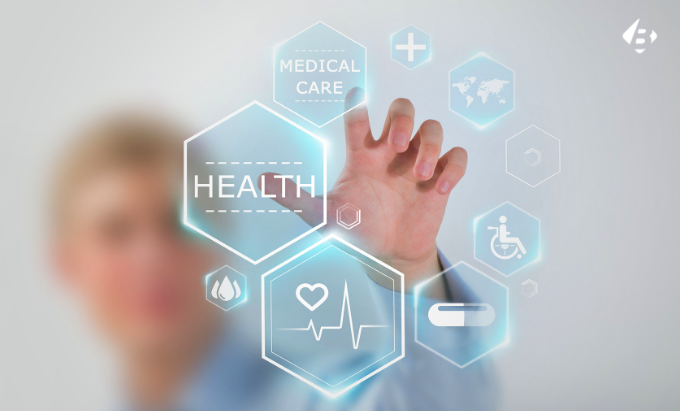
In today’s world, companies in all industries are increasingly using data to make better decisions and improve their performance. The healthcare industry is no exception, as accurate and actionable insights from data can be used to improve patient care.
For years, healthcare data has been siloed and difficult to access, hindering its potential to transform patient care and business operations. However, the rise of med-tech innovations is revolutionizing the way healthcare data is collected, stored, analyzed, and utilized. These advancements are empowering businesses to extract valuable insights from this vast trove of information, paving the way for improved patient outcomes, enhanced operational efficiency, and groundbreaking innovations.
AI-Powered Diagnostics: Revolutionizing Disease Detection
Artificial intelligence (AI) is at the forefront of med-tech innovations, transforming the way diseases are detected and treated. AI-powered algorithms can analyze medical images, such as X-rays and MRI scans, with unparalleled precision, identifying subtle patterns that may indicate the presence of cancer or other diseases. This enhanced diagnostic accuracy leads to earlier detection, timely interventions, and improved patient prognoses.
Personalized Medicine: Tailoring Treatment to Individual Needs
Personalized medicine represents a paradigm shift in healthcare, moving away from one-size-fits-all treatments and embracing a patient-centric approach. By leveraging genetic, lifestyle, and environmental factors, personalized medicine tailors treatment plans to each individual’s unique needs, maximizing therapeutic efficacy and minimizing adverse effects.
VR/AR: Transforming Healthcare Training and Surgical Procedures
Virtual reality (VR) and augmented reality (AR) are revolutionizing healthcare training and surgical procedures. VR simulations provide immersive environments where healthcare providers can practice complex procedures in a safe and controlled setting, enhancing their skills and preparedness for real-world scenarios. AR overlays real-time information onto a patient’s anatomy, guiding surgeons during procedures with unparalleled precision.
Wearable Devices: Monitoring Health Metrics for Early Intervention
Wearable devices have become indispensable tools for monitoring a wide range of health metrics, including heart rate, blood pressure, and sleep patterns. This continuous data stream provides valuable insights into an individual’s overall health and well-being, enabling early detection of potential health issues and timely interventions to prevent adverse outcomes.
Telehealth: Expanding Access to Quality Care
Telehealth is bridging the gap between patients and healthcare providers, particularly in underserved areas or for those with limited mobility. Through video conferencing and remote monitoring technologies, telehealth extends access to quality care, enabling timely consultations, medication management, and chronic disease management.
Harnessing Med-Tech Innovations for Business Growth
The transformative impact of med-tech innovations extends beyond patient care, empowering businesses to achieve operational excellence and drive growth. By leveraging these advancements, businesses can:
- Develop innovative products and services that address unmet patient needs
- Optimize marketing and sales strategies based on data-driven insights
- Reduce healthcare costs through predictive analytics and preventive care
- Enhance patient satisfaction and loyalty through personalized care and improved outcomes
Conclusion: A Glimpse into a Brighter Future
The future of med-tech is brimming with promise, as these innovations continue to evolve and permeate the healthcare landscape. The convergence of AI, data analytics, and digital technologies will revolutionize disease diagnosis, treatment personalization, and patient engagement. Businesses that embrace these advancements will not only gain a competitive edge but also contribute to shaping a healthier and more equitable future for all.
The potential to reduce healthcare costs through predictive analytics and preventive care is a game-changer. By leveraging data-driven insights, businesses can make informed decisions that not only benefit their bottom line but also contribute to a more sustainable and efficient healthcare system.
Personalized medicine’s shift towards a patient-centric approach is commendable. By considering genetic, lifestyle, and environmental factors, it’s paving the way for more tailored and effective treatment plans. This marks a crucial step towards maximizing therapeutic efficacy while minimizing adverse effects.
The rise of AI-powered diagnostics is truly transforming the healthcare landscape. The ability to detect diseases with unparalleled precision through medical imaging is a game-changer, emphasizing the potential for earlier interventions and improved patient outcomes. Exciting times for the intersection of technology and healthcare
Telehealth’s role in expanding access to quality care is particularly noteworthy. By leveraging video conferencing and remote monitoring, telehealth is breaking down barriers, ensuring that patients, regardless of location or mobility, can receive timely consultations and necessary care. A crucial step towards healthcare accessibility.” remote monitoring, telehealth is brea
Wearable devices monitoring health metrics represent a proactive approach to healthcare. The continuous stream of data offers valuable insights, enabling early detection of potential health issues. This is a promising avenue for preventive care and timely interventions, ultimately contributing to better overall health outcomes.